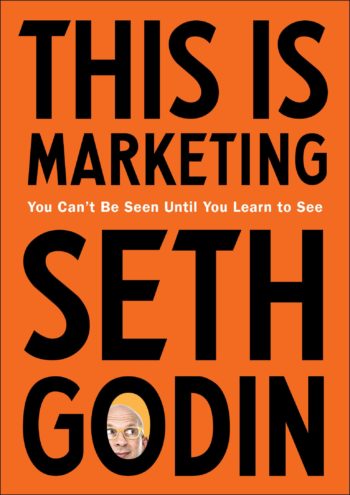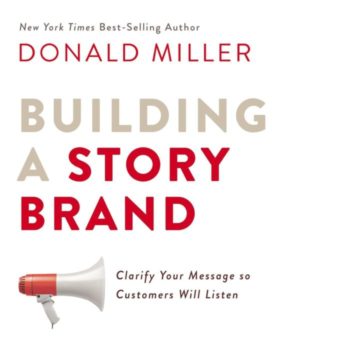What is marketing?
Marketing encompasses the strategies and tactics brands use to promote their products and services to consumers. Everything from market research to writing ad copy falls within the realm of marketing.
At first glance, marketing even a single product or service can seem like an enormous challenge. You understand the value of your offering – but how do you show it to consumers? And how can you ensure they actually pay attention to your message?
Let’s start with some basic marketing principles.
The four Ps of marketing
In the late 20th century, marketing thought leaders developed the concept of the “Marketing Mix,” a set of concepts and tools that help companies achieve their objectives within a market. At the core of this model are the four Ps:

- Product: What are you selling? A shiny new business widget? A hand-crafted luxury item? Chicken tacos? Whatever it is, you’ll need to think about how to package or present it. Marketers should be familiar with all the features and specifications of the products they sell.
- Price: To determine how much your product should cost, you’ll need to do some research. Learn how your competitors price their offerings, and understand how much consumers are willing to pay.
- Promotion: These days, marketers have many channels through which to promote their products. From radio ads to social media banners, you’ll need to decide which are right for your brand.
- Place: Your customers need to be able to find and purchase your product. Can they buy your product online? Do they need to visit a store? Additionally, you’ll need to consider how much inventory to hold and where to keep it. These days, inbound marketing strategies rely on engaging content to bring customers to you (or your website).
Reaching your target audience
You probably have some idea about who your target consumers are and why they might be interested in your product. If you’re selling a piece of accounting software, you know that your target buyer doesn’t want to spend hours every week making calculations by hand.
But you can only trust your gut so far: 45% of businesses don’t have a formal digital marketing strategy. These organizations toss digital content into the abyss of the internet without ever measuring their results or thinking about how to do better.
In other words, to be better than 45% of your competition, you need to conduct market research (read industry reports, monitor trends, engage your buyers in conversation) and then build a marketing plan based on the insights you reveal.
By doing so, you can determine which channels are best for marketing your offerings. Eventually, website analytics can show help you tweak your strategy until it’s perfect.

Types of online marketing
Once you know who makes up your target audience, you’ll need to determine how best to reach them. Integrated marketing strategies create a unified experience across all platforms.
Some of the most prominent channels include:
- Content marketing.
- Email marketing.
- Social media marketing.
- Pay-per-click advertising.
- Influencer marketing.
You’ll likely need to use more than one type of marketing, but try not to spread your resources too thin. It’s better to have one or two robust channels than to have five unoptimized marketing campaigns.

Via Lucep.
Staying up-to-date with the latest marketing trends
A good marketer never stops learning.
Though the fundamentals of marketing may remain steady over time, the specific strategies businesses deploy are affected by a number of factors, such as:
- Changing consumer demographics: Younger generations of people may respond to different appeals, compared with older generations. Customer opinions can greatly influence your content strategy.
- Emerging technology: Mobile devices, voice search and other developments offer new ways for marketers to reach their customers.
- Fluctuating market conditions: The global economy is in constant flux; what was affordable to consumers yesterday may be out of reach tomorrow.
- Cultural shifts: Political and social movements shape the way consumers view companies and their offerings.
How do you forecast these changes? They can shift gradually over long periods of time, especially in the case of technology adoption. You can’t just put a finger to the wind and determine what the next trend will be.
That’s when you turn to expert advice. Blogs are a great place to start. Those of us embedded in the world of marketing every day share our experiences, analyze reports and make educated predictions about the future of marketing.
Further reading: The best marketing books to have on your shelf
A steady diet of books and articles can also keep you informed and up to date on the latest marketing trends. The following books serve as a great foundation for your knowledge base:
This is Marketing: You Can’t Be Seen Until You Learn to See
By Seth Godin

If you’re just getting into marketing, know that Seth Godin is a name you’ll see a lot. His website, online courses and lectures are hugely popular. In this book, Godin shares his wisdom on digital marketing and teaches lessons on how to build great brands.
Notable quote: “Some dog owners want gluten-free food, loaded with high-value placebos. But let’s not get confused about who all this innovation is for. It’s not for the dogs. It’s for us.”
Good to Great: Why Some Companies Make the Leap and Others Don’t
By Jim Collins

Though published in 2001, Jim Collins’ best-selling book on what makes companies great is still relevant today. The insights found in this book are drawn from 28 in-depth analyses of companies that either became great or succumbed to mediocrity.
Notable quote: “The good-to-great companies made a habit of putting their best people on their best opportunities, not their biggest problems. The comparison companies had a penchant for doing just the opposite, failing to grasp the fact that managing your problems can only make you good, whereas building your opportunities is the only way to become great.”
Building a StoryBrand: Clarify Your Message So Customers Will Listen
By Donald Miller

Effective marketing appeals to customers the way a great story appeals to an audience. Donald Miller’s book takes storytelling elements and applies them to the world of business.
Notable quote: “Brands that help customers avoid some kind of negativity in life (and let their customers know what that negativity is) engage customers for the same reason good stories captivate an audience: they define what’s at stake.”
Content: The Atomic Particle of Marketing
By Rebecca Lieb

Strategic advisor Rebecca Lieb describes how content has evolved to be the most important aspect of a marketing strategy. This book walks readers through the evolution of new media and how it’s shaped how marketers connect with consumers today.
Notable quote: “The culture of content is arising not just because brands are publishers, but because employees are publishers, too. Some will shrug this off as noise rather than signal, but the proliferation of channels, platforms and devices is further enabling employees to speak on behalf of the brand.”
Now that you have more knowledge about the basics of marketing, consider learning more about how to craft a winning blog post or about how to connect your marketing strategy to your sales goals.
Marketers must be comfortable with a trial-and-error approach to their work, but the more you learn and study the greats, the quicker you’ll see success. Good luck!



